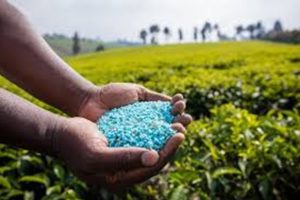
BY HIZKEL HAILU
It was half a decade back while I was a third-year student of Accounting and Finance (my 2nd BA degree) at Micro link Information and Technology College that my Economics instructor gave me Macro Economics course. At that time, he asked the whole class to look at ourselves and everything in the classroom and identify materials made in Ethiopia. It was however unfortunate that we failed to get one except for the arm-chairs we sat on and one girl with cultural traditional cloth.
The clothes and shoes we wore, the exercise books and pens we used, the markers and the whiteboard our instructors used were all imported. Then he referred to himself; what he was wearing from head to toe was imported from the same foreign country, China. We were so ashamed of with our clothing. As a lecturer of Economics, he also did not understand how it was of paramount importance to purchase products from the homeland economy.
The instructor then said that we Ethiopians think and believe that we are heroic and patriotic when things come down to our national sovereignty. Well, he continued that battlefield patriotism is not that helpful in the 21st century. It is economic patriotism that can certainly help our country’s poverty alleviation programs. The era of colonization is not over yet; it just substituted political colonization with economic colonization. Illustrating the economic experience of developed countries and suggesting all of us to be proud on locally-produced goods; he stated that consuming such products is equal with investing in the homeland.
He illustrated that many Indian lecturers working on different Universities in Ethiopia wore their homeland’s products. They are also sure that each and every penny of their UN-funded salaries flies to the Indian economy. Even other foreigners who are giving different courses, in different Ethiopian colleges and Universities also wear their local brand clothes and shoes.
Scholars of the field and the current government of Ethiopia also share the aforementioned idea by the lecturer. They stressed that buying locally-produced goods of Ethiopia is seemingly important to highly magnify the nation’s economy.
Responding to queries raised by members of House of Peoples’ Representatives at the 13th ordinary session this week, Prime Minister Abiy Ahmed (PhD) noted that his government is highly dedicated on implementing import substitution mechanisms including encouraging to use locally produced goods.
He further noticed that the country’s producing local product potential is extremely increasing. The Premier illustrated that the school uniform, bags, and shoes and other leather products are also produced locally. As a result, it was possible to save much amount of foreign currency, he noted. It was also learnt that the country has been able to save 1 billion USD by substituting import goods during the first six months of Ethiopian budget year.
Approached by the Ethiopian Herald, an economist, Hailemeskel Gazu said that Ethiopians should not confined on buying foreign brands rather they should be proud of the locally-produced goods. In an economy where the domestic consumers do not have an interest in purchasing locally produced goods and services, there is no way in which domestic industries can advance and expand.
There is one amazing saying that many economists usually heard saying; “Buying your own (locally produced goods and services) is investing in your own future.” For instance, if Ethiopians tend to purchase Anbessa, Kangaroo, Tikur Abay and some other locally produced shoes instead of the imported ones, it will bring a crystal clear change on the import export balance of the country.
“Furthermore, when these shoe factories find out that their products are being widely demanded, they plan to increase the number of shoes they produce. In order to do that, the factories will also expand their plant size coupled with hiring more laborers and open more selling centers. At the same time, they should also modernize their products through adopting different styles,” he explained.
As to him, the factories’ demand for raw materials like leather and other inputs rise which in turn expand the market of leather and skin processing plants. The expansions of local shoe factories therefore, induce the expansion of leather and skin processing plants. In return, when leather and skin processing plants expand their demand for more labor and more inputs rise; and this increases employment on one hand and creates more market for farmers having the hides and skins of animals. Such a continuum in the expansion of various sectors has a multiplier effect on the overall aspect of the economy, he noted.
He further mentioned that Ethiopia should halt exporting raw materials and sometimes semi-finished materials (such as leather) and importing finished products (like shoes, jackets, belts etc) from those countries we sent our exports to. As to him, such trade system has the adverse effect on the trade balance.
Appreciating the current government’s commitment on import substitution and escalating export potential of the country, the economist insisted Ethiopians towards consuming locally produced goods and thereby benefiting themselves and the country’s economy as well. While mentioning that Ethiopia should not be import-dependent, he also stated that the traders, investors as well as all stakeholders should work hand in hand with the government in order to boom the nation’s economy.
Reports from the Ministry of Industry indicated that when our exports exceed the nation’s imports, the country will benefit more. Apart from increasing export revenues, the government aims to help manufacturers to meet the increasing local demand by substituting imports and reducing production costs.
According to the report, the manufacturing and industry sector is projected to grow from 6.8 percent in 2020 to 17.2 percent by 2030, increase its production capacity to 85 percent from the 50 percent target, and foreign trade revenue to 9 billion USD from the current 400 million USD from the sector.
Industry Minister, Melaku Alebel for his part recently said that 545 million USD worth clothing is imported every year while the nation exports only 114 million USD worth clothing. In order to correct this huge trade imbalance, extensive works have been undertaken, he added.
Foreign exchange was, for instance, saved by producing over 1.5 million pairs of shoes at home, according to the Minster. In the past two years, over 718,000 pairs of quality shoes were also produced and provided for students in Addis Ababa by making industries work with full capacity, he noted. He further noted that encouraging results have been gained from such efforts.
“Most people, especially the city dwellers, tend to stick with the consumption of imported products with prestige, which of course is not a source of pride. This tendency denotes the lack of cognizance of the modern sense of patriotism, which is economic patriotism,” Hailemeskel noted. As to him, this can clearly indicate that how ignorant most Ethiopians are.
Noting that all colonizers came to Africa were not by the attraction of its sunshine, rather it is for its resources from which they satisfy their economic hunger, he accentuated that Italy that failed in political colonization has finally succeeded in the economic colonization which of course has been among its very interest back then. Most products’ advert reflects a ‘pride’ upon importing ‘Turkey-made’ ‘German-made’ ‘UK made’ ‘US-made’ products. “This, however, shows our inability and hypocrite tendencies,” he stated.
To this end, the economist explained that consumers buying locally-produced goods have a positive effect on the industrialization process besides other economic policy actions of the government. The government can use the exchange rate to alter the consumption pattern of the populace. Exchange rate devaluation, in the eyes of pure economics, discourages import and encourages export.
According to the law of demand, when the price rises, demand falls. As a result, since the devaluation of local currency leads to an increase in the price of imported products, consumers’ demand for the imported consumable items fall and their demand for locally produced goods and services rise.
“By increasing demand for locally produced goods and services, we shall invest in our own future and the future of our own children. Our bold histories on the battlefield have to be repeated again and again, but this time the battlefield is the local market and our weapons are the locally-produced goods and services,” the economist said.
According to the economists, political and social advancements come after economic advancement. The economic advancement, thus, is not a miraculous phenomenon rather it is an outcome of a collaborated effort of various stakeholders such as policymakers, institutions, as well as the discipline of domestic consumers. Therefore, all Ethiopians at every corner should work with the government to buy locally produced goods and directly or indirectly put their unceasing role to the nation’s economic growth, officials and scholars suggested.
The Ethiopian Herald June 17/2022





